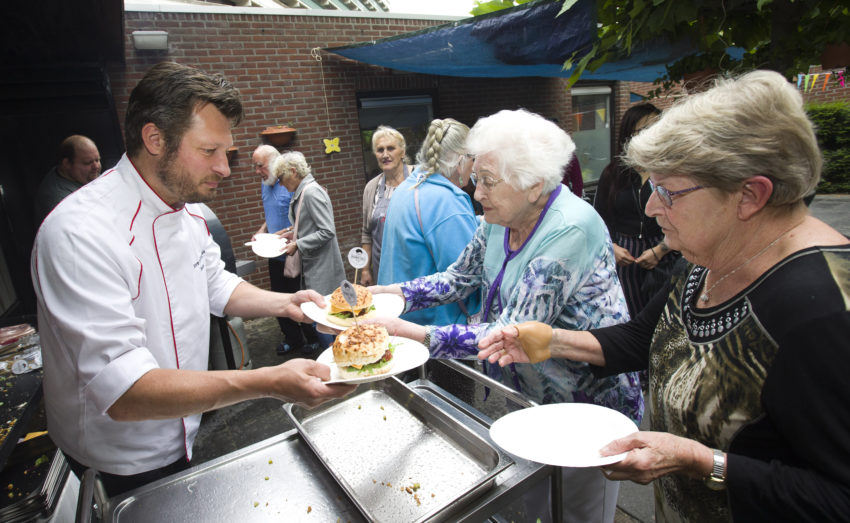Before planning a conference, there’s a few questions to consider: Who does this event affect? What will attendees find to be important and how can organisers incorporate these aspects? What value does the event have for society in a larger context? And what may actually be a net drain on society?
“Events respond to a need among a community or group to meet around specific themes, which can be anything from water management and horticulture to drones,” wrote RAI Amsterdam’s CSR manager, Stephanie Mathas, in a recent article. “The success of your event depends on how well you can respond to the requirements of potential and current exhibitors and visitors. But there are many other needs and parties for which you can also create value—your event doesn’t take place in a vacuum, but in a context in which you encounter a variety of social needs.”
Context is key. By paying attention to the needs to the community—as well as delegates—associations can ensure they’re enhancing their event’s social value to the fullest, while tackling social challenges as they arise along the way.
Neighbourhood Venue
RAI Amsterdam is one venue that treats itself more as a neighbour than a conventional conference centre. Since the venue sits in the heart of Amsterdam, RAI Amsterdam works closely with organisers to limit noise and traffic congestion—pesky issues that inconvenience local residents. Instead of waiting for neighbours to complain about these problems, RAI Amsterdam takes a proactive approach to see how the venue (and organisers) can reduce concerns before they become critical concerns.
Another key approach for venues to find their footing in the neighbourhood is by looking to new opportunities that could offer potential value to the surrounding community or environment. “It is a loss for society when any potential value that you could offer through or via your event is left unrealised, especially since there are often plenty of ways to make that happen,” Mathas writes. “Look around and get a feel for what’s going on and who might need what you have to offer. If you view your event purely as a closed economic system, you sell it short.”
RAI Amsterdam, for example, has opened up its potential value by catering to the needs of local organisations like HeenenWeer Foundation, a social service for those living in the De Pijp and Rivierenbuurt districts. Residents who are unable to walk short distances are matched with one of the foundation’s social volunteer drivers, who can transport them to the market or a doctor’s appointment. The foundation parks its electric vehicles at residential care center d’Oude Raai, which is under renovation until 2020. RAI Amsterdam acknowledged this need for temporary parking and swiftly responded to fill the gap by offering free parking facilities for the four green cars.
“As an event organizer, you can generate a lot of value,” Mathas writes.“The question is: Who needs it? Or turn the question around: What social needs are there and how can you contribute to meeting them with your event? Finding the answers requires matchmaking, which fortunately is something our industry is good at.”
CSR Power Move
Not all waste is created—and disposed of—equally. It’s a known fact that conferences generate a variety of waste, from display materials to food from catering. But the way this waste is reused adds a new type of value, particularly when it’s donated back to the community in a manner that shows off tangible good. RAI Amsterdam will introduce the concept of a “donation room” for the first time during an event in September, offering exhibitors a list of social initiatives so they know where their donated items are being distributed in the community. A similar initiative is the ongoing partnership with the Salvation Army in Bij Bosshardt, in the north of Amsterdam, where RAI Amsterdam sponsors a free lunch programme every Thursday.
“Lots of food is prepared in the kitchens of the RAI Amsterdam, and every week, part of this food, which would otherwise be thrown out, is allocated to us,” says Yvonne van Lambalgen, Bij Bosshardt Salvation Army captain. “This enables us to offer some 50 neighbourhood residents a free hot meal every Thursday. The people who come to eat here would probably not meet in other circumstances—they are often lonely individuals on a tight budget.”
Part of RAI Amsterdam’s sustainable catering program, the Heartwarming Amsterdam concept was dreamt up years ago as a way to incorporate ingredients with added value into the venue’s kitchen—which processes 500 tonnes of food a year. Associations were increasingly asking for sustainable catering, looking for eco-friendly, seasonal, organic, and regional ingredients to serve delegates during conferences. As a response, RAI Amsterdam launched Heartwarming Amsterdam, and switched to organic and sustainable alternatives, such as sustainably caught fish from the North Sea and animal-friendly choices like free-range veal in place of meat from boxed calves. In the process, the venue supports small-scale producers in the metropolitan area and adds value to the region as a whole—not to mention doing its part to support the United Nations’ 2030 Sustainable Development Goals. Now, by sponsoring initiatives like free Thursday lunch at Salvation Army, the venue—along with the associations hosting conferences in Amsterdam—is giving back in a way that directly benefits the community.
“At Bij Bosshardt, an initiative of the Salvation Army, we think this is a great initiative by the RAI Amsterdam,” van Lambalgen says.“It helps keep people fed, and also creates valuable friendships by facilitating meetings and allowing people to enjoy a meal together. This has a positive impact on reducing loneliness in the city, and thus our society as a whole.”
This article was written by Boardroom Editor Lane Nieset. The right to use this article has to be granted by the Publisher.
